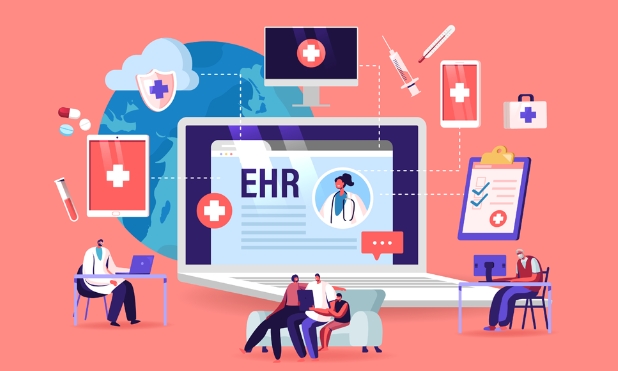Implementing an electronic health record (EHR) system can greatly improve the efficiency and quality of care provided by healthcare organizations. However, there are also challenges that must be navigated in order to successfully implement and utilize an EHR system.
Benefits of EHR Systems
– Improved Patient Care: EHR systems allow for better coordination of care and access to a patient’s complete medical history, leading to more informed treatment decisions.
– Increased Efficiency: Electronic health records can streamline administrative tasks, reduce paperwork, and improve workflow, saving time and resources for healthcare providers.
– Enhanced Communication: EHR systems facilitate communication between healthcare providers, allowing for seamless collaboration on patient care.
Challenges of EHR Systems
– Cost: Implementing an EHR system can be costly, requiring investment in software, hardware, training, and maintenance.
– Training and Adoption: Healthcare providers may resist transitioning to an EHR system due to concerns about learning new technology and changing their workflow.
– Data Security and Privacy: Protecting patient health information is crucial, and EHR systems must have robust security measures in place to prevent data breaches.
Navigating the Implementation Process
– Assess Needs and Goals: Before implementing an EHR system, healthcare organizations should assess their specific needs and goals to determine the best system for their practice.
– Select the Right System: Choose an EHR system that is user-friendly, customizable, and meets the needs of healthcare providers and patients.
– Provide Training and Support: Offer comprehensive training and ongoing support to healthcare providers to ensure successful adoption and utilization of the EHR system.
– Monitor and Evaluate: Continuously monitor the EHR system’s performance, seek feedback from healthcare providers, and make adjustments as needed to optimize its effectiveness.
In conclusion, navigating the benefits and challenges of implementing an electronic health record system requires careful planning, communication, and ongoing support. By addressing the needs and goals of healthcare organizations, selecting the right system, and providing training and support, healthcare providers can successfully leverage EHR systems to improve patient care and operational efficiency.

